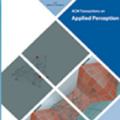To endow models with greater understanding of physics and motion, it is useful to enable them to perceive how solid surfaces move and deform in real scenes. This can be formalized as Tracking-Any-Point (TAP), which requires the algorithm to track any point on solid surfaces in a video, potentially densely in space and time. Large-scale groundtruth training data for TAP is only available in simulation, which currently has a limited variety of objects and motion. In this work, we demonstrate how large-scale, unlabeled, uncurated real-world data can improve a TAP model with minimal architectural changes, using a selfsupervised student-teacher setup. We demonstrate state-of-the-art performance on the TAP-Vid benchmark surpassing previous results by a wide margin: for example, TAP-Vid-DAVIS performance improves from 61.3% to 67.4%, and TAP-Vid-Kinetics from 57.2% to 62.5%. For visualizations, see our project webpage at https://bootstap.github.io/
翻译:暂无翻译




